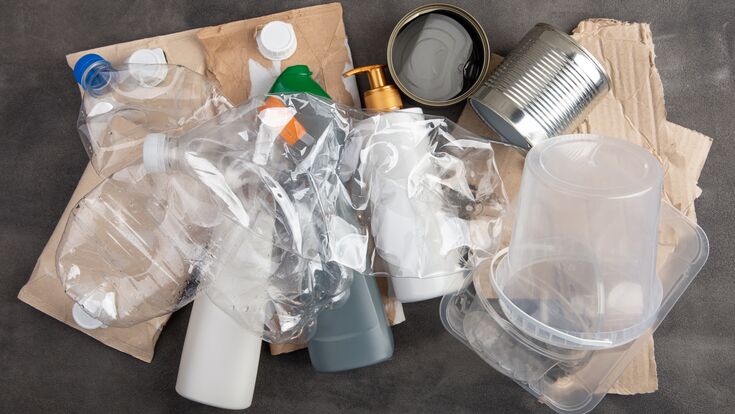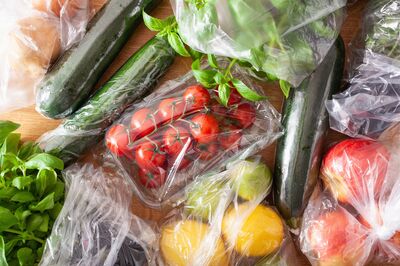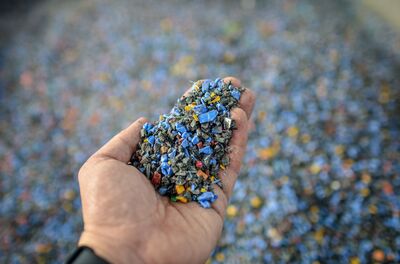Packaging and Packaging Waste Directive : PPWR ready for adoption

In March, the European Parliament and the Council reached a provisional agreement on revised rules for the reduction, re-use and recycling of packaging, the improvement of safety and the promotion of the circular economy. After some discussions also the Committee of Permanent Representatives - a European Council preparatory body made up of the head or deputy head of mission of each EU member state - reached agreement on the so-called Packaging and Packaging Waste Regulation (PPWR) on 15 March. The measures aim to make packaging used in the EU safer and more sustainable. They will require all packaging to be recyclable, minimise the presence of harmful substances, reduce unnecessary packaging, increase the use of recycled content and improve collection and recycling.
Rapporteur Frédérique Ries (Renew, BE) said: "For the first time in environmental law, the EU is setting targets to reduce packaging consumption, regardless of the material used. We call on all industrial sectors, EU countries and consumers to play their part in the fight against excess packaging. The ban on forever chemicals in food packaging is a great victory for the health of European consumers. It was also essential that environmental ambitions meet industrial reality. The deal fosters innovation and includes exemptions for micro-enterprises.“
The agreement sets the following packaging reduction targets
- 5% by 2030
- 10% by 2035
- 15% by 2040
In particular, EU countries will have to reduce the amount of plastic packaging waste.
Related article: Plastic packaging producers want to remove material-specific rules in PPWR
Banning certain packaging
Under the agreement, certain types of single-use plastic packaging will be banned from 1 January 2030. These are
- Packaging for unprocessed fresh fruit and vegetables
- Packaging for food and drink filled and consumed in cafes and restaurants
- Individual portions (e.g. condiments, sauces, cream, sugar)
- Accommodation miniature packaging for toiletries
- Shrink-wrap for luggage at airports
- Very light plastic carrier bags (less than 15 microns) (except where required for hygiene reasons or as primary packaging for loose food to prevent food waste)

Per- and polyfluorinated alkyl substances or PFAS, also known as "forever chemicals", will also be banned in food contact packaging. A decision welcomed by NGOs such as Zero Waste Europe (ZWE). “We are truly relieved to see policymakers taking action on these harmful and extremely persistent chemicals through the PPWR. This means recognising the urgency of phasing out PFAS from food packaging and prioritising consumers’ health. This will hopefully also send a clear message to food packaging manufacturers that all other substances of concern that we currently find in food packaging should also be eliminated in the coming years,“ said Dorota Napierska, Toxic-Free Circular Economy Policy Officer of ZWE.
Promote reuse
To promote reuse and refillability for consumers, the negotiating parties agreed to set a specific target (at least 10%) for reusable packaging for alcoholic and non-alcoholic beverages (excluding e.g. milk, wine, aromatised wine, spirits) by 2030. Under certain conditions, Member States may grant a five-year derogation from these requirements.
Beverage and takeaway outlets will have to allow consumers to bring their own containers. They would also have to have a target of 10% of products in reusable packaging by 2030.
In addition, as requested by the Parliament, Member States will be required to encourage restaurants, canteens, bars, cafés and catering services to serve tap water (where available, free or for a small service charge) in a reusable or refillable format.
The general agreement of the negotiators was that all packaging should be recyclable, subject to strict criteria to be set out in secondary legislation. Certain exemptions are foreseen for light wood, cork, textiles, rubber, ceramics, porcelain or wax.
Some exemptions caused concern among NGOs. Zero Waste Europe has highlighted some worrying exemptions which would benefit paper-based and composite packaging. These include exempting paper from market restrictions and carton from reuse targets. In addition, the complete removal of reuse targets for the take-away sector is another victory for paper industry lobbyists, as this sector has largely switched to single-use paper-based packaging, especially after the adoption of the Single-Use Plastics Directive, according to the NGO.
Other measures agreed include
- Minimum recycling targets for all plastic parts of packaging
- Minimum recycling targets by weight of packaging waste generated and increased recyclability requirements
- 90% of single-use plastic and metal drinks containers (up to three litres) to be separately collected by 2029 (deposit return schemes).
Related article: Mechanical Recycling vs. Chemical Recycling: Rivals or Partners?
A long discussed topic amongst stakeholders was the use of recylate that originates from outside the EU. In the end the parties agreed that the recyclate eventually used in plastic packaging may originate from the EU or may be recycled outside the EU if it meets the European quality and sustainability requirements for recyclate. The plastic waste used can also be collected in the EU or in third countries. However, the environmental standards for collection and recycling in third countries must be equivalent to those in the EU. This has removed trade concerns.
For Olivier Francois, President of The European Recycling Industries' Confederation (EuRIC), "setting equivalent conditions that guarantee that imported recycled plastics meet equivalent standards to those set in the EU is vital for ensuring European industrial sovereignty and competitiveness, while delivering climate objectives and fostering a truly circular economy."
The next step is for the plenary of the European Parliament to decide on the legislative text on 24 April before the EU environment ministers in the Environment Council give their formal approval, which is considered a formality.



